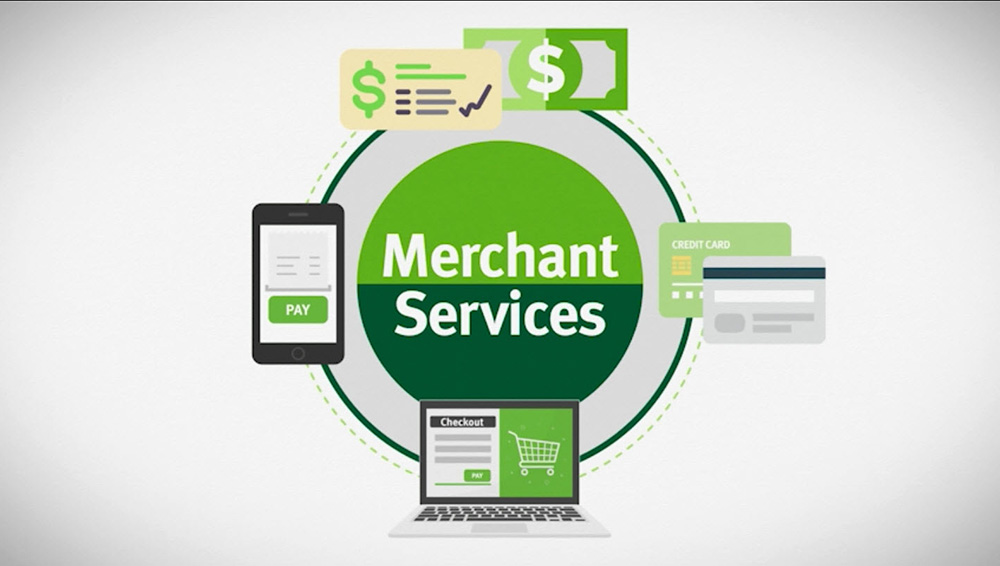If you're a business owner, chances are you've thought about accepting credit cards as a form of payment. After all, nearly everyone uses them these days. But what exactly are merchant services?
Merchant services are simply the ability to accept credit and debit cards as payment for goods or services. This can be done through a physical terminal, an online gateway, or even a mobile device.
If you're thinking of getting started with merchant services, there are a few things you need to know. In this guide, we'll cover everything from the basics of credit card processing to more advanced topics like fraud prevention and PCI compliance.
We'll also provide some tips on how to get the best rates and terms for your business. So whether you're just getting started or you're looking to save on your existing merchant services, this guide will be a helpful resource.
Let's get started!
What are Merchant Services?
As we mentioned earlier, merchant services are the ability to accept credit and debit cards as payment. This can be done in a physical setting, like a brick-and-mortar store, or an online setting, like an eCommerce website.
There are three main components to merchant services: the cardholder, the merchant, and the acquirer.
The cardholder is the person who owns the credit or debit card that will be used for payment.
The merchant is the business owner who is accepting the card as payment.
The acquirer is the financial institution that provides merchant services to the business owner.
There are also two other parties involved in credit and debit card transactions: the issuer and the card network.
The issuer is the financial institution that issued the card to the cardholder.
The card network is the organization that maintains the infrastructure for credit and debit card payments, such as Visa, Mastercard, American Express, or Discover.
Now that we've covered the basics of what merchant services are, let's take a more in-depth look at how they work.
How do Merchant Services Work?
To understand how merchant services work, it's helpful to know a little bit about the credit and debit card industry. In the U.S., there are four major card networks: Visa, Mastercard, American Express, and Discover.
Each of these networks has its own network of issuers, acquirers, and merchants. When a cardholder uses their credit or debit card to make a purchase, the transaction is routed through the card network.
The card network then routes the transaction to the issuer, who approves or declines the transaction. If the transaction is approved, the issuer sends an authorization code back to the card network.
The card network then routes the authorization code to the acquirer, who contacts the merchant to see if the transaction is authorized. If the transaction is authorized, the acquirer sends an approval code back to the card network.
The card network then routes the approval code back to the issuer, who approves the transaction and sends a chargeback code back to the card network. The card network then routes the chargeback code to the acquirer, who charges the cardholder's account.
The merchant then receives the funds from the transaction, minus any fees charged by the acquirer or card network.
Now that we've covered how merchant services work, let's take a look at the different types of merchant services.
Types of Merchant Services
There are three main types of merchant services: physical terminals, online gateways, and mobile devices.
Physical terminals are the most common type of merchant service. They are typically used in brick-and-mortar stores, restaurants, and other businesses that accept credit and debit card payments in person.
Online gateways are used to accept credit and debit card payments on eCommerce websites and other online businesses.
Mobile devices can be used to accept credit and debit card payments in person or online. There are two main types of mobile devices: smartphones and tablets.
Now that we've covered the different types of merchant services, let's take a look at the benefits of using merchant services.
Benefits of Merchant Services
There are many benefits of using merchant services, including:
1. Increased Sales: Credit and debit cards are the most popular form of payment, so accepting them can increase your sales.
2. Convenience: Merchant services are convenient for both you and your customers. Customers can use their credit or debit card to make a purchase without having to carry cash or write a check. And, you don't have to worry about handling cash or checks.
3. Security: Merchant services are more secure than traditional forms of payment, such as cash or checks. When you use a merchant service, your customer's credit or debit card information is encrypted, so it's more difficult for thieves to steal their information.
4. Fraud Protection: Merchant services come with built-in fraud protection. If a customer's credit or debit card is used fraudulently, the card issuer will typically reimburse the customer for the fraudulent charges.
5. Chargebacks: Chargebacks are reversed transactions that can be costly for businesses. When you use a merchant service, you're protected against chargebacks.
Now that we've covered the benefits of using merchant services, let's take a look at the different types of merchant accounts.





